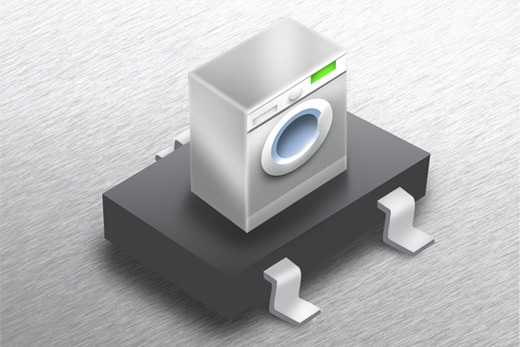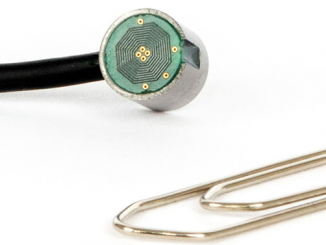
Crocus Technology, a developer of disruptive tunnel magnetoresistance (TMR) sensors, has recently introduced another device based upon its patented Magnetic Logic Unit, this one employing the company’s second generation TMR technology.
The new CT100 is an advanced linear magnetic sensor that can measure the current from an induced magnetic field of a current carrying conductor. It follows the company’s earlier introduction of a two-dimensional angular sensor in late 2018, the CT300.
Able to perform across a wide temperature range with an extremely low linearity error, low hysteresis, and low noise, the new device can address many consumer, industrial and automotive applications, says the company. It does not require flux guides or concentrators, chopping circuits or set/reset pulses and operates over a wide magnetic field range. The MLU is integrated into the CT100 with a single full-bridge magnetic resistor network.

“With its high frequency response, minimal power consumption and small form factor, the CT100 enables simple and creative system designs in applications such as IoT, drones, electric motor controls, power monitoring, and many other consumer, industrial and automotive applications,” according to Zack Deiri, CEO of Crocus. “It is a perfect fit for products such as current and field sensors, fuse current monitors, IoT smart devices, electric motors, magnetic card readers, window and door sensors and mobile electronics where excellent linearity performance and thermal stability is a must.”

Crocus also makes TMR angular sensors that detect the absolute angular orientation of an on-axis 2-pole magnet rotating over the center of the sensor. In late 2018, it introduced its CT300 which is a discrete TMR-based angular sensor also using the MLU technology and designed to provide extremely stable magnetic performance over a wide temperature range and supply voltage range. It is suited for applications such as optical image stabilization, auto-focus enabled camera modules, optical encoders, BLDC motor control, IoT enabled smart devices and appliances, automation equipment, industrial controls and robotics where precise angular position measurements are required.
Headquartered in Santa Clara, CA, Crocus also has offices in Grenoble, France where the company was founded, and in China. www.crocus-technology.com



